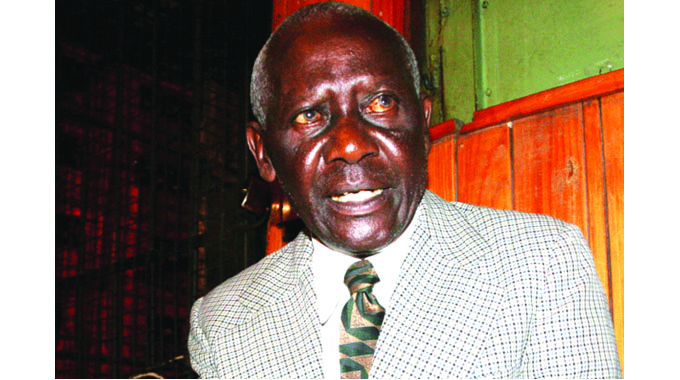Indeed, ‘democracy is not Coca-Cola’

Elliot Ziwira
At the bookstore
“Democracy is not Coca-Cola, which, with the syrup produced in the United States, tastes the same across the world. The world will be lifeless and dull if there is only one single model and one civilisation,” aptly said the Chinese Foreign Minister Wang Yi.
Therefore, there is no licensing authority for democracy “recipes”, since the phenomenon is multi-pronged.
So who determines what is democratic or not?
Ousmane Sembene answers this question in his timeless novel, “The Last of the Empire” through Doyen Cheikh Tidiane Sall, who argues that democracy is not a one-size-fits-all marvel.
He maintains that there is, “European democracy, and there is our own African democracy as well”; and that “African style democracy is public (whereas) European-style democracy is kept under control.”
In addition, “French democracy is fetishism! They always vote for the Right”.
The Speaker of the National Assembly, Magatte Kane reveals that, “Our Constitution was patterned on the American model”.
Considering all the different takes on democracy articulated in the statements above, it suffices that the concept of democracy is problematic.
Africans have always had their own forms of democracy as portrayed in Chinua Achebe’s “Things Fall Apart” (1958), and Niane’s “Sundiata: An Epic of Mali” (1961). Colonial hegemony brought Western forms of democracy, which were alien to Africans, and were, moreover, forced on them.
As is the case in “The Last of the Empire” (1981), leaders in the postcolonial nation state believe that they owe their legitimacy and power to the people through democratic processes which they preside over.
However, a close analysis of what constitutes democracy reveals a different scenario altogether, and shows how much the people are trapped in the democracy of the day, rarely becoming a part of it.
As Sembene highlights, assimilation foists French hegemony, which becomes a historical burden that still afflicts Francophone Africa, Senegal included.
Through assimilation, France sought to create a black man, who would think of himself as French first and African second; a black Frenchman, who is educated in the French ways and sees everything through the eyes of a Frenchman.
It is this historical burden that plays havoc with Leon Mignane, the President of the fictional state of Senegal, reverently known as the Venerable One in “The Last of the Empire”.
The title “The Last of the Empire” inspires hope in that it connotes the collapse of colonial bastions and imperialistic proxies and functionaries lacking an ideology that can advance the African people’s cause.
In the book, the empire is satirised as lacking hope. Therefore, a new vision, which is people-oriented, is projected as achievable after the destruction of the decaying edifice.
However, this is not easy considering how the post-colonial nation state in Africa is itself burdened by both its own history, and the West’s history of plunder, materialism and hypocrisy.
Using metaphors, satire and symbolic elements, Sembene purveys a new ideology that combines different aspects of the past with the present, for a better tomorrow, where the military becomes a people’s army, and the people play a part in their destiny.
The empire connotes deceit, hypocrisy, avarice and oppression, whose strongholds need to be destroyed.
The dialectical tensions that lead to the initial collapse of the empire to pave the way for new African leaders, rebound in the postcolonial state through neo-colonialism.
It is this neo-colonial thrust, which Armah (1973) is contemptuous of.
The dialectical tensions in the postcolonial nation state are steeped in the empire’s hold through proxies like Leon Mignane.
This soils nationalistic ideologies and distances the supposed leaders from the people as they are merely puppets of the empire.
In the novel, Sembene seeks to capture the African dream as envisaged by Doyen Cheikh Tidiane Sall, because “the writer writes, creates and pours out images and metaphors given to him by a combination of history, feeling and imagination” (Hove, 2002: 57).
The collapse of the Venerable One’s regime signifies the demise of neo-colonialism, and signalling hope for the people.
The post-colonial nation state finds itself in a conundrum when it comes to shaping acceptable ideologies and forms of democracy that endear the leader to the people.
The nationalist leader has to come up with ideologies that advance more than his thinking if he has to remain relevant to the people’s expectations.
The pursuit of democracy and good governance is always a case in point.
Unfortunately, the ideals of democracy and governance seem to be borrowed robes from the West, and fail to speak to and impact African realities.
The word democracy in all its variables pervades discussions in “The Last of the Empire”. The dialectical tensions that erupt because of the hegemonic nature of democracy and ideology are somehow hinged on material gain.
Diamond (2009) points out that some of the key elements of a democratic government include a political system that makes it possible to elect and replace the government through free and fair elections, the active participation of the people as citizens, and a rule of law in which the laws and procedures apply equally to all citizens.
Diamond (2009) and Montesquieu (1689, 1755) concur that the people’s will, as citizens or through their representatives, are major cogs in a democratic society.
In Marx’s view, social classes also play a major role in what constitutes democracy.
In “The Last of the Empire”, the Venerable One, who is at the head of the dominant class, uses ideology and hegemony to determine constitutionality in Senegal.
Leon Mignane, who is central to the power structure in the ruling party, uses his Authenegraficanitus ideology to hoodwink both members of his party as well as the people to believe that his interests are theirs too.
Thus, the Venerable One’s imagined Eurafrica becomes a reality to members of the ruling party and the people, who believe that they are represented by their deputies in the National Assembly.
He has a government of predominantly young ministers and deputies who rubberstamp whatever he says.
To those in the ruling class, whatever Leon Mignane says goes. Dissenting voices aired through sober minded people like Doyen Cheikh Tidiane Sall are stifled through the “tyranny of the majority”.
In a world where individuals are inherently selfish, democracy functions through quashing the will of the minority through numbers, and thwarting the will of the majority through intimidation, tall talk and outright lies.
The Doyen opens up to Attorney Ndaw: “Surrounded by expatriate advisers, Leon Mignane decided everything on his own. The young ministers went along with everything.
“Meeting after meeting, I was being attacked, almost assaulted. In the end I kept quiet, while still taking part in Cabinet meetings once a week.”
No matter how people-oriented his views, may be the Doyen is always shot down because of the tyrannical nature of this sham of democracy.
During the debate on whether Senegal should send troops to Zaire or not, Cheikh Tidiane expresses his reservations.
Correa tells him: “Doyen, you are undermining our unity by opposing majority rule,” and he responds: “Your democratic majority is a monarchist pyramid, Correa. The President is in the wrong. And he is dragging us after him”.
Democracy, indeed, is not Coca-Cola, for it comes in so many shades, and may be used against the feeble and the vulnerable through power and material might.
An analysis of the impact of economic sanctions on ordinary people in targeted nation states also reveals an intriguing analogy.








Comments